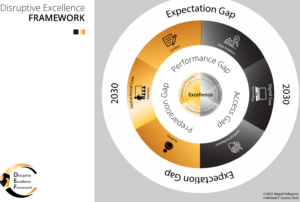Missouri Universities Flip the Lecture Hall

We had a chance to talk to Greg Tobin, President of Higher Education English, Math and Student Success at Pearson this week about Missouri state’s public universities partnership with the National Center for Academic Transformation (NCAT) to establish the Missouri Course Redesign Initiative (MCRI). Some of the major campuses in Missouri are using technology to insert personal and adaptive learning opportunities into their large-enrollment courses in order to boost learning outcomes, as well as save money.
Not sure how it would be possible, Gov. Jay Nixon and the coalition of interested institutions looked to NCAT for recommendations. Carol Twigg, NCAT’s President and CEO said “from working with large numbers of students, faculty and institutions since 1999, NCAT has learned what works and what does not work in improving student achievement in both developmental and college-level mathematics.” She says, “the underlying principle is simple: Students learn math by doing math, not by listening to someone talk about doing math. Interactive computer software combined with personalized, on-demand assistance and mandatory student participation are the key elements of success. NCAT calls this model for success, the Emporium Model, named after what the model’s originator, Virginia Tech, called its initial course redesign.”
The findings show that college students, particularly the ones least prepared for college, seeme to gain the most when placed in a structured environment with immersive software that allows students to work at their own pace and enables the instructor to take on the coaching role. This “Emporium Model” replaces the traditional class time period where instead of sitting in desks listening to lectures in huge lecture halls, students are spending the time working at their own place on a computer.
The schools, guided by the NCAT playbook, really took to heart that in order to be successful, you actually have to redesign the entire approach to the course, you can not just layer technology on top of what you currently have. NCAT recommended which courses on which campuses would most likely benefit to the greatest capacity and encouraged campuses to purchase software. The energy of the school is more well spent focused on students, professional development of their faculty and establishing the infrastructure needed to implement the redesign- not trying to write their own online program.
The schools joining the MCRI, totaling 11 schools, had their choice of platform and online tools to use to employ their redesign. After faculty research, Greg Tobin told us, 6 of the 11 projects chose Pearson’s MyLab and Mastering suite of online homework, tutorial, and assessment programs for both Math and Writing. 100 percent of the redesigns that leveraged Pearson technology improved student learning – Lincoln University; Missouri University of Science & Technology; Missouri State University; University of Central Missouri; University of Missouri – Kansas City; and University of Missouri – St. Louis. All but one project reduced their instructional costs by an average of 30 percent.
The MyLab suite of tools allows for students to receive formative assessment immediately, instead of turning in work, papers et.c and having to wait for their professors to correct and return. As students work through problems, they find out if they have mastered the concept or if they haven’t, instantly accessing tutorials directed towards what they do not yet understand. Because students get one to one personalized instruction, other class time is opened up for applying the concepts they study to the future world situations their studies are intended to prepare them for.
Students and professors found that getting feedback at the point of input is truly a game changer in higher ed, according to Tobin, whether you are studying math, writing or science. By December, students will be able to access to MyLab on an iPad or tablet and availability on smart phones will soon follow.
We have heard the “flip classroom” discussed in high school and even in elementary but looking at the initiative taken in Missouri, there is definite potential for higher ed to leave the large lecture halls behind and give students control of their learning at all times.
Pearson is a Getting Smart Advocacy Partner.






0 Comments
Leave a Comment
Your email address will not be published. All fields are required.